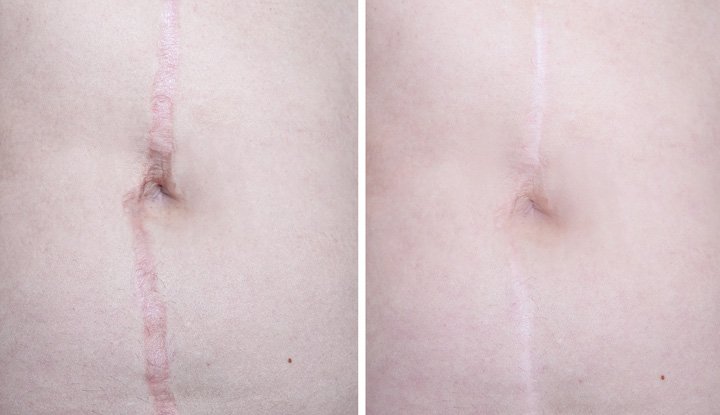Preparing for scar revision surgery involves careful planning and understanding of what to expect before, during, and after the procedure. Whether you’re addressing acne scars, keloids, or other types of scars, proper preparation can help optimize your surgical outcomes and recovery. Here’s a comprehensive guide to help you get ready for scar revision surgery.
Initial Consultation: Choosing the Right Surgeon
The first step in preparing for scar revision surgery is selecting a qualified, experienced surgeon who specializes in scar revision. During your initial consultation:
- Credentials: Ensure your surgeon is board-certified and has specific expertise in scar revision techniques.
- Discuss Goals: Clearly communicate your goals and expectations for scar improvement.
- Review Options: Explore different scar revision techniques suitable for your specific scar type and location.
- Ask Questions: Don’t hesitate to ask questions about the procedure, potential risks, recovery process, and expected outcomes.
Preparing for Surgery: What to Do Before the Procedure
Once you’ve chosen your surgeon and scheduled your surgery, there are several steps to take to prepare effectively:
- Medical Evaluation: Complete any pre-operative tests or evaluations recommended by your surgeon, such as blood tests or imaging studies.
- Medications: Disclose all medications, vitamins, and supplements you’re currently taking to your surgeon. They may advise adjusting or discontinuing certain medications before surgery.
- Smoking and Alcohol: If you smoke, consider quitting to improve healing outcomes. Reduce alcohol consumption, as it can interfere with anesthesia and recovery.
- Nutrition: Maintain a balanced diet rich in vitamins and minerals to support healing. Consider incorporating foods that promote skin health, such as fruits, vegetables, and lean proteins.
- Arrange Transportation: Arrange for someone to drive you home after surgery and, if needed, to assist you during the initial recovery period.
Day of Surgery: What to Expect
On the day of your scar revision surgery, follow your surgeon’s specific instructions, which may include:
- Fasting: Typically, you’ll be instructed not to eat or drink anything for a specified period before surgery, especially if you’re receiving anesthesia.
- Comfortable Clothing: Wear loose, comfortable clothing that’s easy to change out of after surgery.
- Arrive Early: Arrive at the surgical facility or hospital on time to complete any final paperwork and preparations.
Post-Surgery Recovery: Ensuring a Smooth Healing Process
After scar revision surgery, proper post-operative care is essential for optimal healing and scar improvement:
- Follow Surgeon’s Instructions: Take prescribed medications as directed, including antibiotics and pain relievers.
- Wound Care: Keep the surgical site clean and dry as instructed. Change dressings regularly and monitor for signs of infection, such as increased redness or swelling.
- Activity Restrictions: Avoid strenuous activities and follow your surgeon’s recommendations for gradually resuming normal activities.
- Attend Follow-Up Appointments: Schedule and attend all follow-up appointments with your surgeon to monitor healing progress and address any concerns.
Emotional Preparation: Managing Expectations and Recovery
While scar revision surgery can lead to significant improvements in scar appearance, it’s essential to manage expectations and understand that final results may take time to fully develop. Be patient with the healing process and seek support from loved ones or support groups if needed.
Conclusion
Preparing for scar revision surgery involves thorough planning, from selecting a qualified surgeon to taking steps to optimize your health before and after the procedure. By following these guidelines and working closely with your surgical team, you can maximize your chances of achieving smoother, more natural-looking skin through scar revision surgery. Remember, informed preparation sets the stage for successful outcomes and a positive recovery experience.
